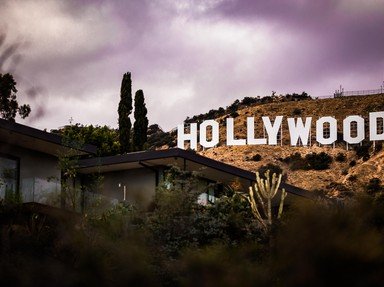Quiz Answer Key and Fun Facts
1. Oklahoma's favourite/Wiley Post/Humourist philosopher
2. Lived to 100/Oscar host/"Road to..." films
3. Paparazzi/Giulietta Masina/"La Dolce Vita"
4. Manchester United/El Beatle/Northern Irishman
5. Birds of the West Indies/British Naval Intelligence/Goldeneye
6. Brigadier General/Gloria McLean/"The Philadelphia Story"
7. "A Spaniard in the Works"/Cynthia Powell/"Double Fantasy"
8. Marion/Cowboy/"True Grit"
9. Pops/Jazz/Trumpet
10. Olympic gold medallist/Mr Tooth Decay/Parkinson's Syndrome
Source: Author
pollucci19
This quiz was reviewed by FunTrivia editor
skunkee before going online.
Any errors found in FunTrivia content are routinely corrected through our feedback system.
